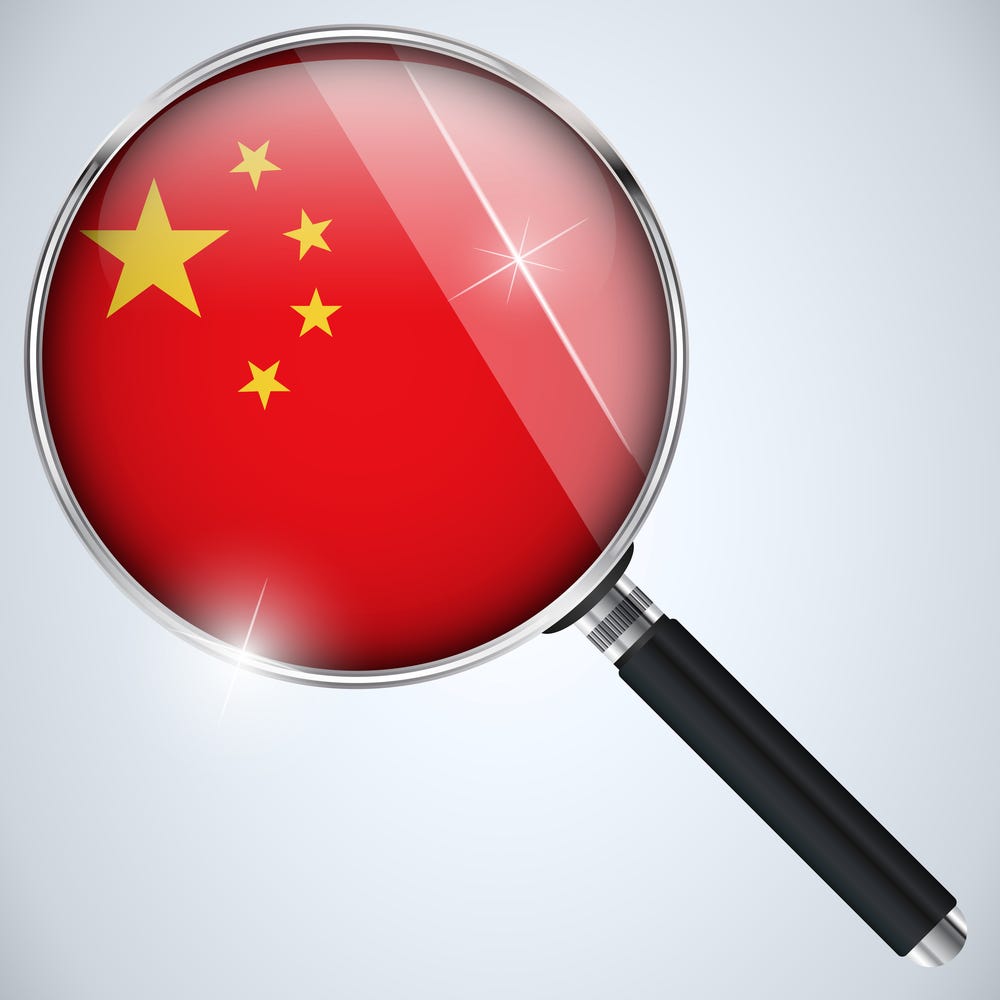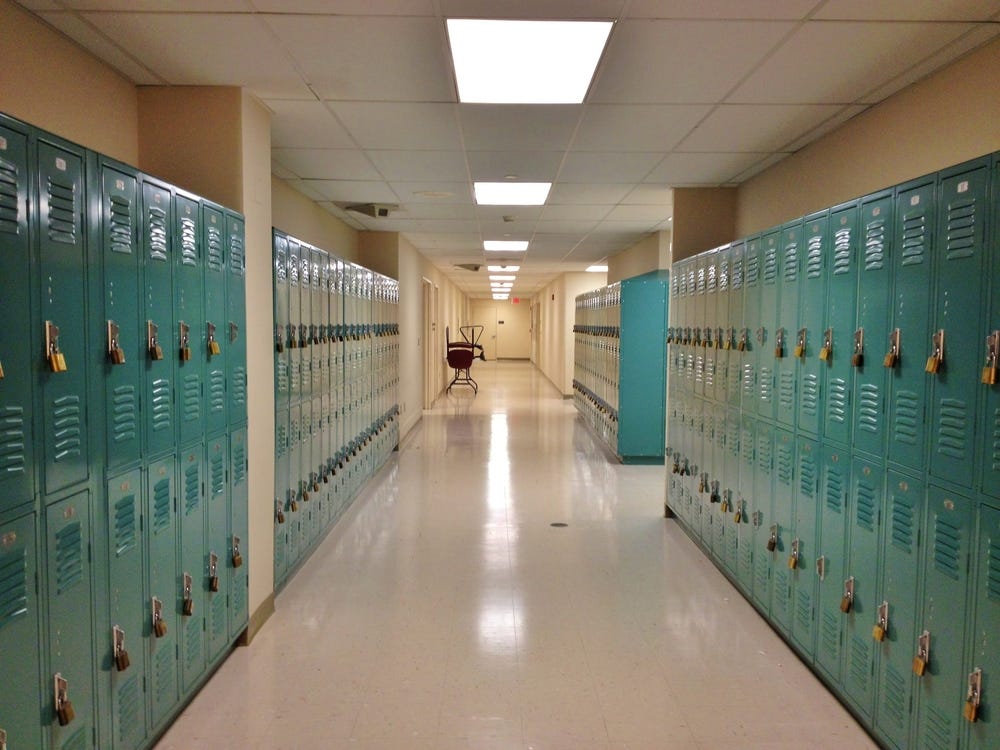E-Pluribus | September 16, 2022
The growing threat of Chinese espionage, surprised by skepticism, and what a high schooler who objected to supporting "antiracism" went through.
A round-up of the latest and best writing and musings on the rise of illiberalism in the public discourse:
Nigel Inkster: China Is Running Covert Operations That Could Seriously Overwhelm Us
Communist China’s overt actions are threatening enough on their own, but Nigel Inkster writes at The New York Times that there’s much going on that we can’t see that is equally worrisome if not more so. Inkster shows why the threat of Chinese spying is as bad if not worse than anything the U.S. has faced before.
The culture of the Chinese Communist Party has always had a clandestine nature. But as the party has become an even more dominant force in China since President Xi Jinping took power a decade ago, this has metastasized in state institutions. China can best be described as an intelligence state. The party views the business of acquiring and protecting secrets as an all-of-nation undertaking, to the point that rewards are offered to citizens for identifying possible spies and even schoolchildren are taught to recognize threats.
The West cannot fight fire with fire. Mobilizing government, society and economic and academic systems around competition with foreign foes the way China does would betray Western values. But leaders of democracies need to internalize the sea change that has taken place in China and ensure that engagement with Beijing is tempered by a hardheaded sense of reality.
The last state intelligence threat of comparable magnitude was posed by the Soviets. But the Soviet Union was isolated and impoverished. China’s successful economy, on the other hand, is a key engine of global growth, vastly increasing Beijing’s reach.
[ . . . ]
Liberal democracies cannot just play defense; political leaders must champion greater investment in offensive intelligence collection capabilities and outreach programs that educate businesses, political organizations and other potential targets about their vulnerabilities. Systems also are needed to assess the national security implications of what otherwise might just seem normal commercial activities by Chinese companies or non-Chinese entities acting as fronts for Beijing.
Read the whole thing.
Angel Eduardo: I Thought I Was a Skeptic, But I Fooled Myself
A few years ago, Angel Eduardo had an epiphany. What started out as reasonable skepticism had morphed into an unhealthy acceptance of ideas and information just as dangerous and wrong as that which he consciously rejected. Eduardo traces his journey for Center for Inquiry.
Skepticism is a valuable thing, and self-skepticism is probably its most critical manifestation. We are hard-wired for pattern seeking and pattern making. It’s an ability that has brought us great fortune, but which misfires far more than we often like to admit. In the realm of empirical knowledge, we’re fortunate enough to have devised science as a tool to mitigate our subjectivity. But in the social and interpersonal arena, where mere data can’t hold the kind of sway that a good story does, humility is the thing we really need to help see us through.
As a result of my misadventures, I’ve come to develop a near-physical aversion to certainty. The moment I think I’ve got something or someone figured out, I stop, consider all the possible ways I could be misunderstanding, and proceed with that caution in mind. It’s been long enough now that, when I see the colossal levels of smugness and condescension some people have—particularly online—I can barely fathom their bravado. At this point, I’m all too aware of how easy it is for us to fall into old habits and patterns of thought, to think we’re too smart to be taken for a ride, and for that to be the very reason we get taken completely.
Read it all.
Sahar Tartak: My High School’s ‘Antiracist’ Agitprop
Sahar Tartak probably had no idea being student government treasurer for her high school could land her in such hot water. At The Wall Street Journal (as well as in a short documentary in Around Twitter below), Tartak tells how she refused to go along when her school’s administration tried to pressure her to sign a check for a “racial equity” group to address the student body.
Lately, though, the area’s diverse and liberal-minded residents may have reason to think their local school officials aren’t as open-minded as they thought. In 2021 Great Neck North High School directed the student government to give $375 of student funds to a “racial equity” group to speak to the student body about “systemic racism.” I was the student government’s treasurer, and I felt we didn’t know enough about the organization and its mission to disburse the funds. So I refused to sign the check.
In response, the teachers who advise the student government berated, bullied and insulted me at our next meeting, which took place over Zoom for my parents to overhear. They began by announcing that my social studies teacher would be present. Together, the three adults told me that the principal himself found my stance “appalling.” I had made them and the school “look bad,” they told me. One teacher said the situation gave her “hives.”
[ . . . ]
District officials responded in the way school officials often do when criticized. They ignored us for as long as possible, then delayed taking action for as long as possible, clearly hoping everybody would forget the controversy and move on. They didn’t respond to my father’s freedom-of-information request until the day before a contentious school-board election. The board then promised to further investigate the curriculums, but we never heard anything after that. My school brought in a member of the state Education Department’s Board of Regents, to discuss curriculums, but that resulted in nothing.
Read it all here.
Around Twitter
The Foundation for Individual Rights and Expression on the continued efforts of various government entities to regulate or suppress “misinformation”:
Via Free Black Thought, excerpts from a useful thread on logical fallacies that show up in the media:
And finally, a short documentary from recent high school graduate Sahar Tartak (the author of the Wall Street Journal essay included above) on her experiences in student government in the age of antiracism:











